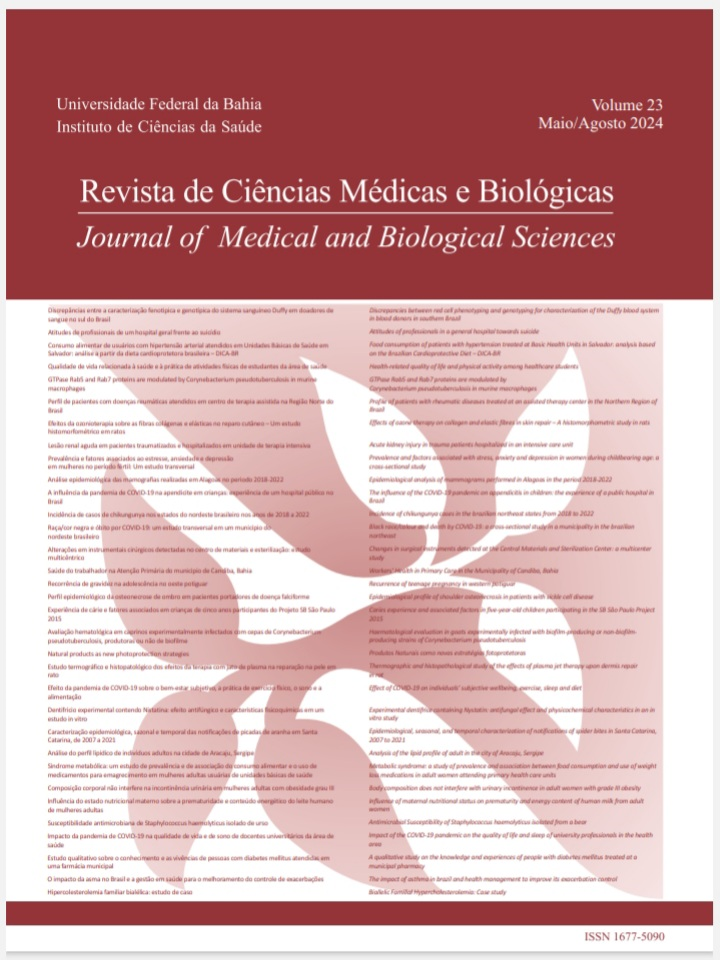RAÇA/COR NEGRA E ÓBITO POR COVID-19: UM ESTUDO TRANSVERSAL EM UM MUNICÍPIO DO NORDESTE BRASILEIRO
DOI:
https://doi.org/10.9771/cmbio.v23i2.52885Keywords:
COVID-19; GRUPOS RACIAIS; SAÚDE ÉTNICA; DISPARIDADES NOS NÍVEIS DE SAÚDEAbstract
Objective: To estimate the frequency of completion of the race/color/ethnicity item and the association between black race/color and deaths from COVID-19, in the municipality of Camaçari, Bahia, between the years 2020 and 2021. Method: This is an observational, cross-sectional study, through the survey of information from the Department of Informatics of the SUS (OpenDATASUS). We investigated the distribution of COVID-19 cases by race/color/ethnicity and the distribution, for the variables: age group, sex and existence of comorbidities. Logistic regression, by subgroups, was used for data analysis and Odds Ratio, their respective 95% confidence intervals and p value, obtained through the chi-square test (χ2) were estimated. Results: The findings showed that, for the year 2020, the race/color/ethnicity item was not completed in 19.7% of confirmed cases of COVID-19, while in the following year, it was 28.54%. For the years 2020 and 2021, black individuals under the age of 60 were more affected by the disease, with a higher proportion of males and a higher occurrence of at least one risk factor for COVID-19, when compared to non-black individuals . Blacks without comorbidities were 16% more likely to die (OR: 1.16; 95% CI 1.02 – 1.31), when compared to non-blacks, these findings were statistically significant when adjusting for age and sex variables (p<0.018). Conclusion: The race/color/ethnicity item still has its record neglected. Black individuals with COVID-19 who did not have a previous risk factor for the disease had a higher chance of mortality when compared to non-black individuals.
Downloads
Downloads
Published
How to Cite
Issue
Section
License
Copyright (c) 2024 Journal of Medical and Biological Sciences

This work is licensed under a Creative Commons Attribution 4.0 International License.
The Journal of Medical and Biological Sciences reserves all copyrights of published works, including translations, allowing, however, their subsequent reproduction as transcription, with proper citation of source, through the Creative Commons license. The periodical has free and free access.


